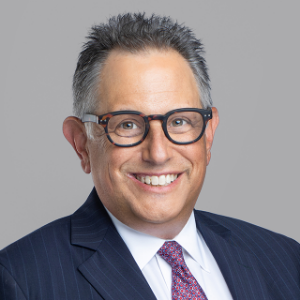When deployed to Somalia in 1993, Dowe - like other members of the Canadian military - was prescribed mefloquine, an anti-malarial drug. Years later, when struggling with a variety of symptoms – anxiety, insomnia, sleep disturbances, disassociation etc. – he was diagnosed with PTSD. Yet, when his efforts to tackle the disorder proved less-than-successful, Dowe began researching the effects of mefloquine, reaching out to experts and learning about advocacy efforts worldwide.
Issues with Mefloquine
What he found gave him serious pause. There was a growing body of evidence demonstrating that mefloquine can lead to various side effects, some of which mirror those of PTSD, including mood swings, panic attacks, hallucinations and suicidal thoughts. He also learned that Canadian soldiers given mefloquine were part of a clinical trial that didn't follow proper procedure. Though the drug manufacturer had requested that any side effects be disclosed to them, soldiers weren’t made aware of that ask or the potential downsides.
As concerns over the drug’s impact increased, countries around the world started questioning the use of Mefloquine. Canada, however, was slow to respond. Dowe was determined to change that. “I quickly realized it would be best to form an alliance of experts and advocates so that we could be a greater force,” he recalls of the motivation that precipitated his co-founding of the International Mefloquine Veterans’ Alliance in 2015.
Shortly thereafter, mefloquine was withdrawn from shelves around the world, including in the UK, Australia and U.S. “It just started steamrolling from 2016 forward,” shares Dowe.
Dowe Teams up with Paul Miller
Eventually, Dowe’s reputation as an advocate on mefloquine brought him to the attention of Paul Miller – and the two never looked back.
Partner at Howie Sacks and Henry, Miller had teamed up with lawyers at Waddell Phillips in pursuit of this unprecedented mass tort lawsuit, seeking compensation for veterans who were prescribed mefloquine. Dowe would become a plaintiff – and an important ally.
He couldn’t be more thrilled to be working with the team. “They are genuine, patient, willing and able to guide you through process and so committed,” he says, adding that their impressive efforts from day one led to an avalanche of attention in the media and among veterans. “They bring a lot of gravitas to their work; their reputation precedes them.” Equally impressed is Dowe’s wife, Anna, who shares that the lawyers went the extra mile by conducting town halls across Canada to meet veterans who had a difficult time traveling. “That was a super nice touch that won a lot of people over.”
An Advocate for his Peers
Dowe is winning a lot of people over too. And it’s not hard to see why. His dedication to the cause and advocacy on behalf of those unable to fight for themselves is an inspiration. As to what he hopes the lawsuit will achieve, Dowe is clear: an apology by the government and the screening of all former mefloquine users to get a clearer picture of the treatment they need.
“The lawsuits will address the charter rights infringements for the mock drug trial and the reckless manner in which the Canadian armed forces dispensed the drug in the ensuing years, jeopardizing a lot of people and denying the fiduciary duty of care that was to be expected from our leaders,” he says. “We hope that Canada will finally address this like other nations.”
Today mefloquine has fallen out of favour by the average Canadian consumer and is no longer seen as a first choice for the military, though not yet declared a drug of last resort. But that’s progress. “Due to our advocacy over the last couple of years, we’ve gotten them to turn off the tap,” he says.
The Right Treatment Made the Difference
As for how he’s doing, Dowe is equally positive. “I’m in a great place today, doing much better than most,” he says, explaining that the drug affects users in different ways. Dowe also credits his awareness of the drug and its effects for helping him get the support he needed. Even though the symptoms of mefloquine mimic those of PTSD, they require different treatment, which Dowe learned the hard way. “We are now able to shine that light to help others.”
And Dowe is grateful for the tremendous support of his family (kids aged 8 and 13) and wife. “Where we are today is extremely rewarding and hopeful,” echoes Anna. “The skies are clearer than they were 4 years ago when he was receiving treatment for PTSD and wasn’t getting better.” In fact, the two split up for over two years due to those challenges. But they’ve since reunited (and renewed their vows last September) and Anna even wrote a book to help other caregivers support their loved ones going through similar trauma.
The two are now focused on the lawsuit, with confidence high and optimism strong. As John explains, “We’re working towards this legal action and we have a lot of faith because of the teams on board.”
















